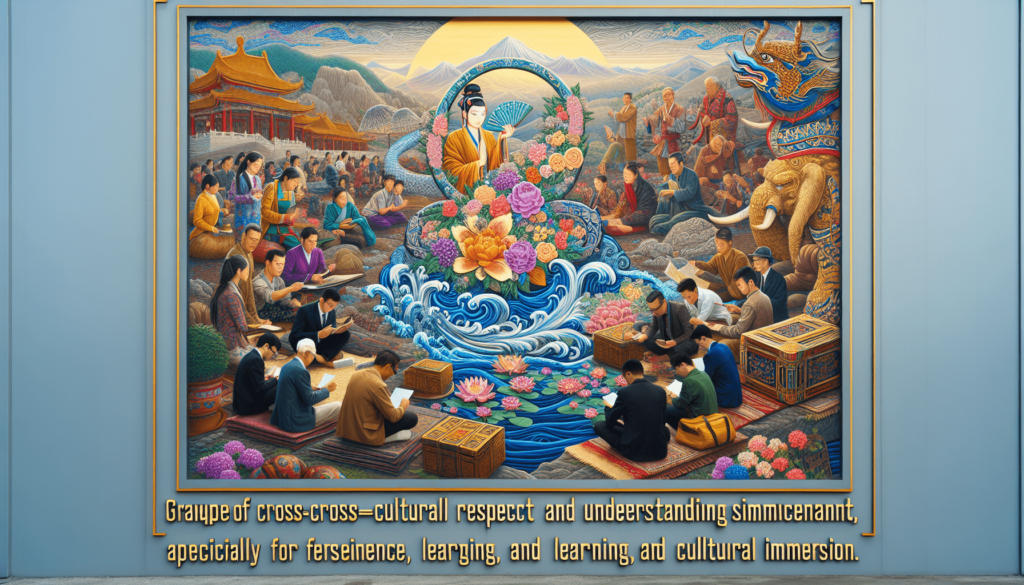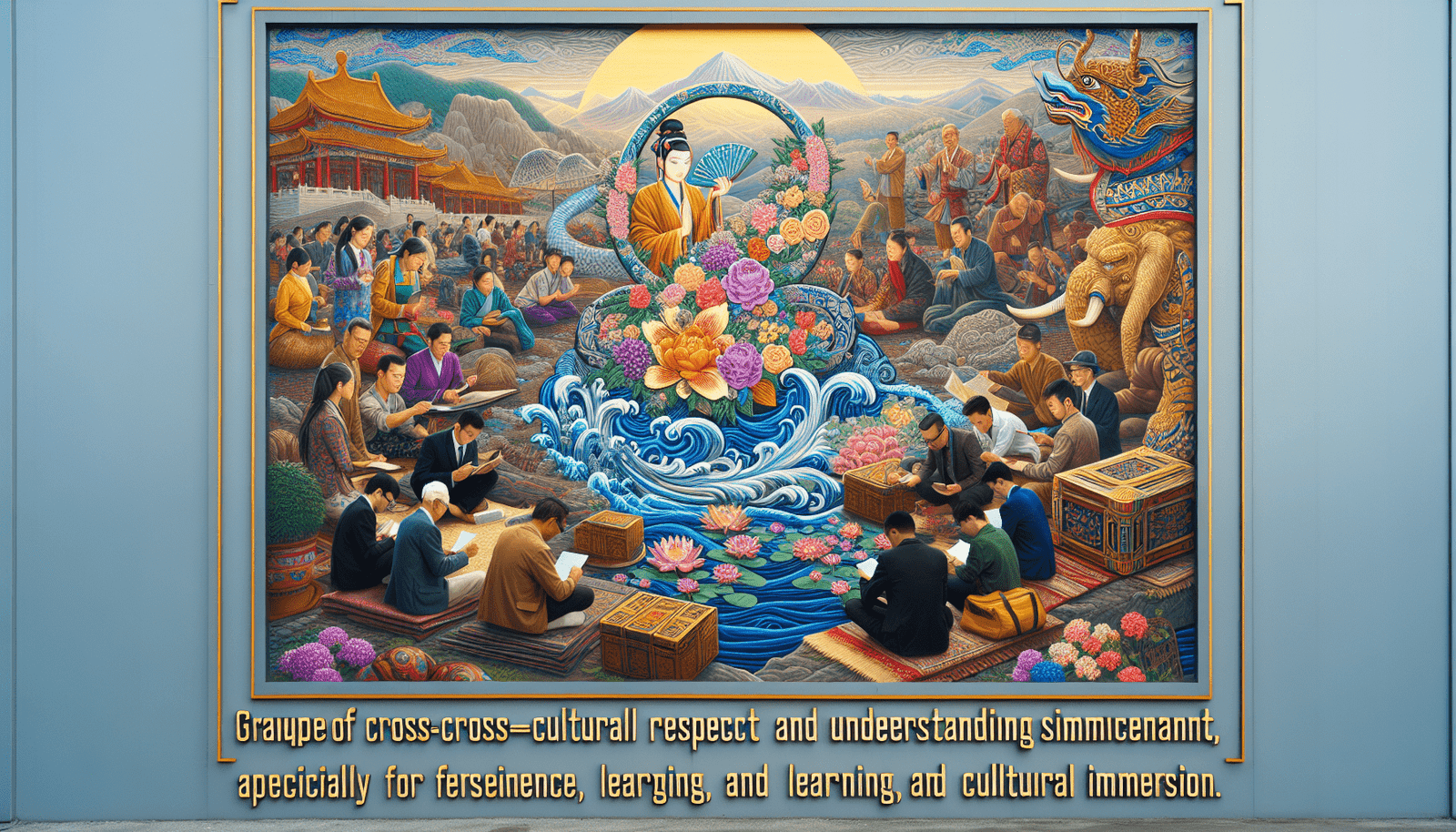Are you planning to move to an Asian country? Whether it’s for work or simply to experience a different culture, understanding the local etiquette is crucial to fitting in and making a smooth transition. In this article, we will provide you with a comprehensive guide to expat etiquette in Asian countries. From bowing in Japan to removing your shoes in many Southeast Asian homes, we’ll cover the do’s and don’ts that will help you navigate social interactions with grace and respect. So, let’s get started on this exciting journey of cultural exploration!

Understanding Cultural Norms
Respect for hierarchy
In many Asian countries, there is a strong emphasis on respect for hierarchy. This means that individuals are expected to show deference and defer to those who are older or hold higher positions in society. It is important to address individuals by their appropriate titles and to be aware of the social status of the people you interact with.
Importance of saving face
Another important cultural norm in many Asian countries is the concept of “saving face.” This refers to the act of avoiding embarrassment or humiliation for oneself or others. It is crucial to be mindful of how your actions or words may impact the reputation and dignity of others. Efforts should be made to handle conflicts and disagreements in a way that minimizes the loss of face for all parties involved.
Collectivism vs Individualism
While many Western cultures emphasize individualism, Asian countries often prioritize collectivism. This means that the needs and goals of the community or group are valued over the desires of the individual. It is important to be aware of and respect this cultural difference, as it may influence the way decisions are made and relationships are formed in Asian societies.
Greeting Etiquette
Handshakes vs Bowing
Greeting customs vary across different Asian countries. In some countries, such as Japan and South Korea, bowing is the traditional way of greeting others. The depth and duration of the bow can convey different levels of respect. In other countries, like China, handshakes have become more common, especially in business settings. It is important to be familiar with the preferred greeting style in the specific country you are in, and to follow the lead of the person you are greeting.
Addressing people with appropriate titles
Using appropriate titles to address individuals is essential in Asian cultures. It is important to address people by their honorific titles, such as “Mr.,” “Mrs.,” or “Dr.,” followed by their last name. In some cases, it may be necessary to use a person’s full name, along with their title, to show respect. It is advisable to ask for guidance or observe how others address individuals in order to avoid any unintentional disrespect.
Exchanging business cards
Exchanging business cards is an important ritual in many Asian countries, particularly in professional settings. When presenting and receiving business cards, it is important to do so with both hands as a sign of respect. Take the time to read the card and show interest in the information it contains. It is also customary to offer your business card with both hands and to ensure that your card is printed in both English and the local language.
Communication Style
Speaking softly
In many Asian countries, a softer and more reserved communication style is preferred. Speaking softly and avoiding raising your voice is seen as a sign of politeness and respect. It is important to be mindful of your volume and to adapt your speaking style to match the cultural expectations of the country you are in.
Using indirect language
Direct confrontation and openly expressing dissenting opinions are generally frowned upon in many Asian cultures. Instead, people often use indirect language and subtle gestures to convey their messages. It is important to pay attention to non-verbal cues and to read between the lines to fully understand what is being communicated.
Avoiding confrontations
In Asian cultures, avoiding confrontations and maintaining harmony is highly valued. It is important to be mindful of this cultural norm and to approach conflicts or disagreements in a calm, diplomatic manner. Finding solutions that preserve the relationship and avoid unnecessary confrontations is key.
Dining Etiquette
Chopsticks etiquette
When dining in Asian countries where chopsticks are the primary utensil, it is important to be familiar with the proper use of chopsticks. Avoid using chopsticks to pass food directly to another person, as this action resembles a funeral ritual in some cultures. Additionally, do not leave your chopsticks sticking upright in a bowl of rice, as this is associated with death and bad luck.
Leaving a small amount of food
In many Asian cultures, leaving a small amount of food on your plate is a sign of politeness and gratitude. It shows that you have been served enough food and are satisfied. However, clearing your plate completely may imply that you are still hungry and could be seen as an insult to the host.
Showing appreciation for the meal
Expressing gratitude and appreciation for the meal is an important aspect of dining etiquette in Asian countries. It is customary to compliment the host on the taste and presentation of the food. Taking the time to savor each dish and expressing genuine enjoyment will be seen as a sign of respect and appreciation.

Gift-Giving Customs
Choosing appropriate gifts
When giving gifts in Asian countries, it is important to choose items that are culturally appropriate and meaningful. Avoid giving clocks or sharp objects, as they are associated with funerals and death in many Asian cultures. Instead, consider gifts that reflect the recipient’s interests or are symbolic of good luck and prosperity.
Presenting gifts with both hands
When presenting a gift in Asian countries, it is customary to use both hands as a sign of respect. The gift should be wrapped neatly and should be presented with a slight bow. The recipient is expected to graciously accept the gift with both hands and to show appreciation for the gesture.
Refraining from giving clocks or sharp objects
As mentioned earlier, clocks and sharp objects are considered inappropriate gifts in many Asian cultures. They are associated with death and can be seen as ominous or offensive. It is best to choose gifts that are culturally appropriate and will be well-received by the recipient.
Dress Code
Modesty in attire
In many Asian cultures, modesty is highly valued when it comes to attire. It is advisable to dress in a modest and conservative manner, particularly when visiting religious sites or attending formal events. This means avoiding clothing that is revealing or excessively casual.
Avoiding overly casual clothing
While Western-style casual clothing may be acceptable in some situations, it is best to err on the side of caution when it comes to dress code in Asian countries. Dressing slightly more formal than what is expected can help show respect for the cultural norms and enhance your credibility.
Covering tattoos and body modifications
Tattoos and body modifications may be viewed differently in Asian cultures compared to Western cultures. It is best to cover visible tattoos and piercings when visiting religious sites or engaging in more formal settings. This shows respect for the cultural norms and helps to avoid potential misunderstandings or offense.
Visiting Temples and Religious Sites
Dress code and behavior
When visiting temples and religious sites in Asian countries, it is important to dress modestly and respectfully. This typically means covering your shoulders and knees. Remove your shoes before entering the temple and be mindful of your behavior, maintaining a quiet and respectful demeanor.
Removing shoes before entering
In many Asian countries, it is customary to remove your shoes before entering homes, temples, and certain businesses. It is important to observe and follow this custom to show respect for the local culture. Look for cues such as shoe racks or a pile of shoes at the entrance to determine if you should remove your shoes or not.
Obeying temple rules and rituals
Each temple may have its own specific rules and rituals that visitors are expected to follow. Take the time to read any signs or instructions posted and observe how locals behave. It is important to be respectful and follow the guidelines provided to ensure a positive and meaningful experience.
Public Behavior
Respecting personal space
Respecting personal space is an important aspect of public behavior in Asian countries. It is advisable to maintain a comfortable distance from others and to be mindful of the personal space of those around you. Avoid unnecessary physical contact and be aware of the cues given by others to ensure you are not invading their personal space.
Being mindful of noise levels
Unnecessary noise, such as loud talking or disruptive behavior, is generally considered impolite in many Asian cultures, particularly in public places like public transportation or restaurants. It is important to be mindful of your noise levels and to speak softly when in public spaces to avoid causing discomfort or annoyance to others.
Avoiding public displays of affection
Public displays of affection, such as kissing or hugging, can be considered inappropriate or disrespectful in many Asian countries. It is best to refrain from such behavior in public settings and to be mindful of cultural expectations and norms. Showing respect for the local customs and traditions is essential.
Business Etiquette
Importance of building relationships
In Asian business culture, building strong relationships and trust is of utmost importance. Taking the time to establish personal connections and investing in networking is crucial. It is important to engage in small talk and to show a genuine interest in the lives and opinions of your business counterparts.
Being punctual for meetings
Being punctual is highly valued in Asian business culture. Arriving early or on time for meetings demonstrates professionalism and respect for others’ time. It is advisable to plan your schedule accordingly and to allow for potential delays or traffic to ensure you are never late for important meetings.
Respecting seniority
Respect for seniority and hierarchy is deeply ingrained in many Asian business cultures. It is important to defer to those with higher positions or more experience and to show respect for their opinions and decisions. Avoid directly challenging or contradicting senior colleagues, as it may be seen as disrespectful and may harm your professional relationships.
Social Customs
Accepting and reciprocating invitations
When living or traveling in Asian countries, it is important to accept invitations graciously and to reciprocate the gesture whenever possible. Invitations can provide valuable opportunities to connect with locals and understand more about their culture. Showing appreciation and actively participating in social gatherings helps foster positive relationships.
Understanding social hierarchies
Social hierarchies are often more pronounced in Asian cultures compared to Western cultures. It is important to be aware of and respectful towards these hierarchies. Pay attention to social cues and mannerisms, and be mindful of the way you interact with individuals of different social statuses.
Respecting elders and authority figures
Respect for elders and authority figures is a fundamental aspect of Asian culture. It is important to show deference and respect to older individuals and those with higher positions of authority. Using appropriate titles and addressing individuals with respect goes a long way in demonstrating your understanding of and willingness to adhere to cultural norms.
Navigating the cultural norms and customs of Asian countries can greatly enhance your experience as an expat. By respecting hierarchy, saving face, and understanding the balance between collectivism and individualism, you can build positive relationships, avoid unintentional misunderstandings, and create a more harmonious living or working environment. Embracing the local etiquette and customs will not only help you integrate into the local community but also deepen your appreciation for the rich cultural heritage of these diverse and fascinating countries.

